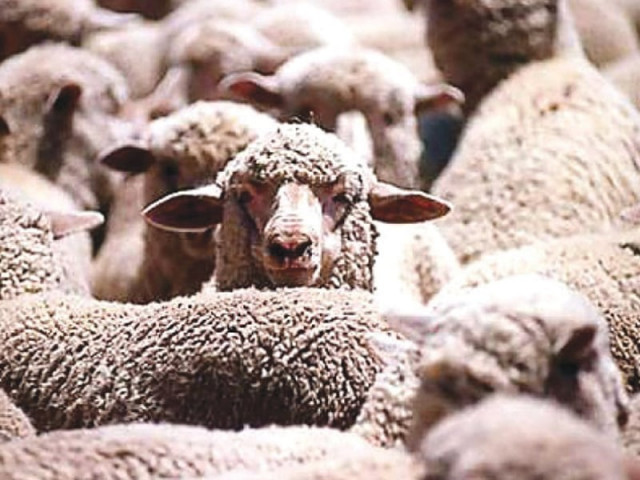(Un)healthy animals: Australia clears exporter of responsibility for sheep cull
Insists the exporter of sheep to Pakistan complied with all the conditions.

On August 4 last year, Wellard exported a consignment of approximately 75,000 sheep to Oman, Qatar and Bahrain, of which after Wellard was allowed export of approximately 21,000 sheep to Pakistan. PHOTO: FILE
The Australian government has released an investigation report into last year’s cull of Australian sheep in Pakistan, which absolves the exporter of all responsibility for the slaughter of about 21,000 sheep at the hands of Pakistan’s authorities.
Australia’s Department of Agriculture, Fisheries and Forestry (DAFF) said in its report, released on Wednesday, Wellard Rural Exports, the exporter, complied with all the conditions of the Notice of Intention to Export (NOI), Consignment Risk Management Plan (CRMP) and Exporter Supply Chain Assurance System (ESCAS).
However, the investigation concluded that the handling and slaughter of sheep shown in the video footage was not compliant with the recommendations of the World Organisation for Animal Health (OIE). It also advised the DAFF secretary to consider the outcome of the investigation while approving any future ESCAS applications for Pakistan.
On August 4 last year, Wellard exported a consignment of approximately 75,000 sheep to Oman, Qatar and Bahrain. Following a dispute with Bahrain, Wellard requested DAFF to amend the NOI, CRMP and ESCAS to allow export of approximately 21,000 sheep to Pakistan’s PK Livestock and Meat Company. DAFF accepted the request and the consignment arrived in Pakistan on September 5.

Following the offloading, however, reports appeared in the media about the health of sheep. The Australian government insisted that the sheep were fit for human consumption and met all the importing country’s requirements for both Bahrain and Pakistan. This position was later confirmed through independent laboratory tests and veterinary examination as well.
Despite a series of independent laboratory tests and litigation in the high court, the Sindh Livestock and Fisheries Department, police and municipal authorities culled and buried the livestock in PK Livestock and Meat Company’s farm on the outskirts of Karachi citing health reasons by October 21.
“Intervention by Pakistan authorities and accompanying armed police was beyond the control of Wellard and could not have been avoided through the exercise of all due care,” the report said.
Australia’s livestock industry has voluntarily suspended the export of feeder animals to Pakistan, a position that is also supported by DAFF.
Speaking to The Express Tribune, a spokesman for PK Livestock and Meat Company said the company held the government of Pakistan directly responsible for the cruel and uncalled-for cull of 21,000 sheep, which were fit for human consumption as per test reports of international laboratories.
“Who is going to compensate us now that the Australian government’s investigation shows all regulatory requirements were fulfilled and the livestock was fit for human consumption?” he said.
Saying that the company was ‘blackmailed’ by government functionaries, he demanded that Pakistan should also make its investigation report public that the Federal Investigation Agency (FIA) has already conducted into the matter.
According to Animals Australia Campaign Director Lyn White, there are question marks over the documentation relating to this shipment on both Pakistani and Australian ends.
“The inquiry has cleared the exporter despite compelling evidence that its failure to be transparent with Pakistan authorities contributed to the mass slaughter (of sheep),” White told The Express Tribune in an email on Wednesday.
She also expressed concern over the fact that the investigation did not consider how Pakistan could have a ‘legitimate contingency plan’ for Wellard, though the country was not even approved to take Australian animals when the ship set sail from Australia last August.
“It is obvious that Wellard’s loss of control of its supply chain and resultant brutal cull of the animals was a direct result of Pakistan not being informed about the history of the shipment,” she said.
White added DAFF has flatly refused to admit that, before being diverted to Pakistan, the shipment was formally rejected by Bahrain, leaving the vessel stranded at sea for nine days.
Published in The Express Tribune, July 26th, 2013.
Like Business on Facebook, follow @TribuneBiz on Twitter to stay informed and join in the conversation.



















COMMENTS
Comments are moderated and generally will be posted if they are on-topic and not abusive.
For more information, please see our Comments FAQ